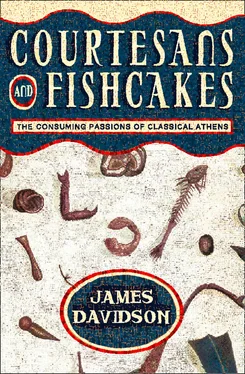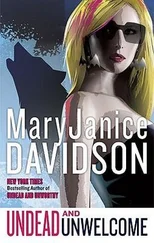But this golden age, where signifier and signified enjoyed so perfectly honest a relationship, so pristine a unity of purpose, was not to last. A hero’s offspring may fall far short of his father’s heroism, notes Socrates in the Cratylus , but he will still be entitled to inherit his name. Under the influence of the etymological fallacy the history of words is no longer a neutral recording of changes in usage, noting diachronic differences without ascribing differential value, but instead a genealogical narrative, a story of strays wandering further and further away from the garden of Eden, deviants whose distance from original and true meaning is measurable in terms of dilution, distortion and error. This makes of writing much more than a straightforward medium of communication. An ideological element creeps in. Texts can be used not merely as a means to communicate most efficiently according to the most generally accepted contemporary understanding, but as a restorative of language, leading words back to their roots, closer to their original authenticity, to their ‘proper’ prelapsarian truth.
The researches of Wilhelm Schulze and Friedrich Bechtel at the turn of the century suggested that the most plausible origin of opson was from a word like psōmos meaning a ‘mouthful’ or a ‘bite’ plus a prothetic o , indicating ‘with’. The most recent etymological dictionaries, considering even this a little reckless, give its derivation as ‘obscure’ and ‘ nicht sicher erklärt ’. 35 Конец ознакомительного фрагмента. Текст предоставлен ООО «ЛитРес». Прочитайте эту книгу целиком, купив полную легальную версию на ЛитРес. Безопасно оплатить книгу можно банковской картой Visa, MasterCard, Maestro, со счета мобильного телефона, с платежного терминала, в салоне МТС или Связной, через PayPal, WebMoney, Яндекс.Деньги, QIWI Кошелек, бонусными картами или другим удобным Вам способом.
In antiquity, however, philologists were less circumspect and confidently traced opson back to words relating to cooking, especially from hepso, ‘boil’, a derivation which was widely accepted until the end of the nineteenth century, and which still survives as the ‘proper’ meaning in some modern dictionaries (thus drawing A. N. Wilson and Bishop Robinson off the track of the Miraculous Draught of Fishes). For the earliest explicit statement of this etymology we are indebted once more to Athenaeus, but it looks as if it was already known to Plato in the classical period. Apart from the circumstantial evidence of his own usage – in his work opson most often refers to a cooked dish – he draws attention to this etymology in the discussion of the diet of primitive civilization. Socrates, we remember, has just been reprimanded for ‘forgetting’ to give his ancient citizens any opson. He retorts that ‘they will indeed have opson: cheese and onions, olives and vegetables, ‘such things as there are in the countryside for boiling, they will boil’ ( hepsēmata, hepsēsontai ). With this bizarre terminology, Plato is pointing to a true meaning for opson as ‘something boiled’ at the time of the misty golden age of language formation. 36 Конец ознакомительного фрагмента. Текст предоставлен ООО «ЛитРес». Прочитайте эту книгу целиком, купив полную легальную версию на ЛитРес. Безопасно оплатить книгу можно банковской картой Visa, MasterCard, Maestro, со счета мобильного телефона, с платежного терминала, в салоне МТС или Связной, через PayPal, WebMoney, Яндекс.Деньги, QIWI Кошелек, бонусными картами или другим удобным Вам способом.
If it was the ordinary fate of words to slip their moorings and wander casually into error, what happened to opson must have seemed the very pinnacle of luxurious degeneration. There have been many theories in recent times to explain how opson came to mean ‘fish’, but the simplest as well as the most convincing account was provided by Isaac Casaubon’s notes on Athenaeus, published in 1600. He suggested it was short for opson thalattion (sea-food), a more obviously comestible term than ichthus , and also more inclusive, appropriate for those delicacies of the deep like crustaceans and molluscs whose inclusion in the category of fish was sometimes considered problematic. Ancient scholars, however, seem to have been quite unaware of this neat process of linguistic shift. Instead, the coinage was presented as a triumph comparable to Homer’s triumph in the canons of literature: ‘Though there are many poets, it is only one of them, the foremost, whom we call “the poet”; and so, though there are many opsa , it is fish which has won the exclusive title “ opson ” … because it has triumphed over all others in excellence,’ as Plutarch puts it. 37 Конец ознакомительного фрагмента. Текст предоставлен ООО «ЛитРес». Прочитайте эту книгу целиком, купив полную легальную версию на ЛитРес. Безопасно оплатить книгу можно банковской картой Visa, MasterCard, Maestro, со счета мобильного телефона, с платежного терминала, в салоне МТС или Связной, через PayPal, WebMoney, Яндекс.Деньги, QIWI Кошелек, бонусными картами или другим удобным Вам способом.
Plato himself, along with many other philosophers, was far from sharing this opinion, and seems on the contrary to have disapproved strongly of his contemporaries’ taste for poissonerie . This is implicit in the Republic where he carefully elides sea-food from the golden age feast and where, in the discussion of the fish missing from Homer, he connects the eating of fish with perfume and hetaeras and all the degenerate paraphernalia of the modern banquet. In addition, at least two Hellenistic authors knew of a story in which the philosopher reproached another member of the Socratic circle, Aristippus, for his fish-consumption. According to Hegesander’s version, ‘Plato objected to him returning from a shopping-spree with a large number of fish, but Aristippus answered that he had bought them for only two obols. Plato said he himself would have bought them at that price, to which Aristippus replied “Well, then, in that case, my dear Plato, you must realize that it is not I who am an opsophagos , but you who are a cheapskate.”’ 38 Конец ознакомительного фрагмента. Текст предоставлен ООО «ЛитРес». Прочитайте эту книгу целиком, купив полную легальную версию на ЛитРес. Безопасно оплатить книгу можно банковской картой Visa, MasterCard, Maestro, со счета мобильного телефона, с платежного терминала, в салоне МТС или Связной, через PayPal, WebMoney, Яндекс.Деньги, QIWI Кошелек, бонусными картами или другим удобным Вам способом.
Читать дальше












